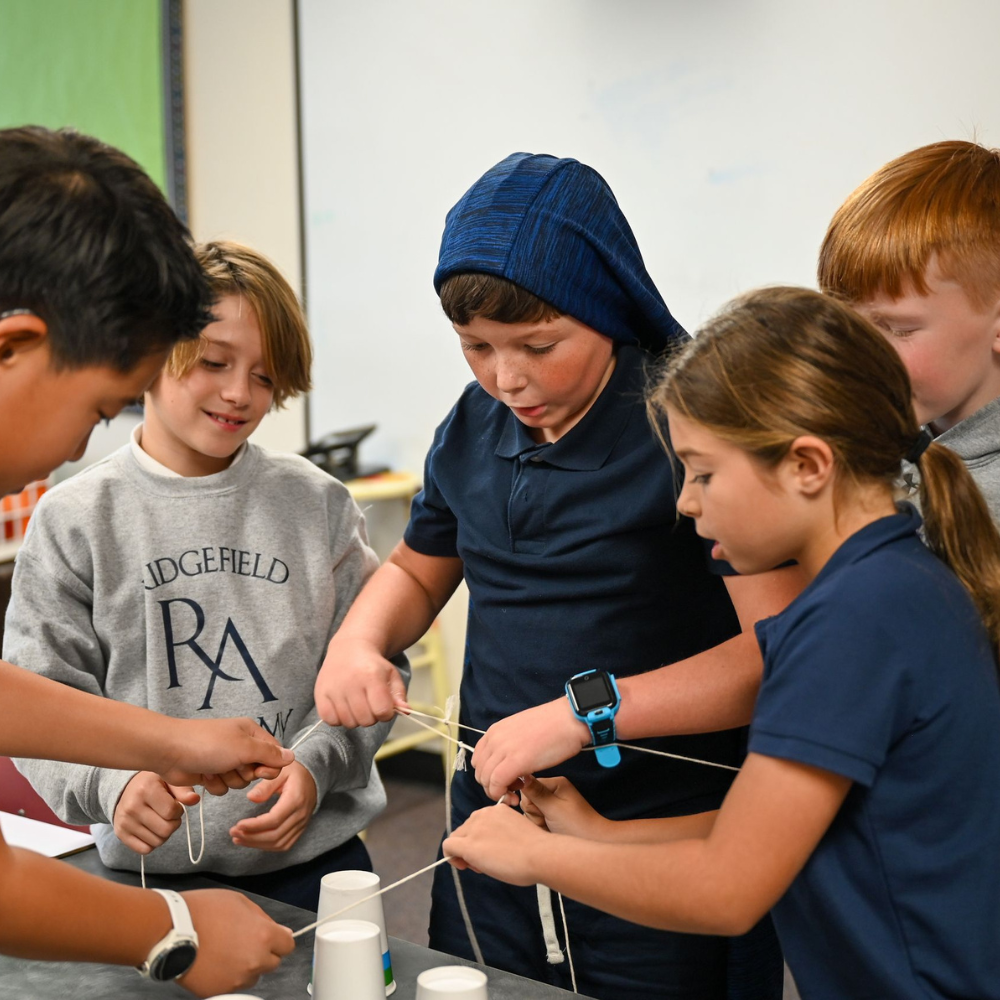


Continually iterating our approach to teaching and learning is essential to ongoing growth at RA/LP. Since 2015, the Center for Innovative Teaching and Learning has laid substantial foundations in the school’s teaching and learning practices, curriculum, and faculty development. Now, we are entering an exciting new phase of momentum in service of our learners.
To ground the school’s commitment to whole child development, we will align with four learning beliefs from Education Reimagined to drive RA/LP forward.
What Is a Learner-Centered Approach to Education?
A learner-centered approach offers a new way to look at, think about, talk about, and act on education. It is not the newest trend; rather, this approach shifts perspective by placing learners at the center. This mindset promotes strategies that result in stronger learning outcomes. It changes everything!
In a learner-centered approach, students are seen as curious individuals with vast capabilities. Students develop meaningful connections with the content, the skills being reinforced, and the mindsets being nurtured.
At RA/LP, children’s interests will shape their learning experiences—and drive the commitments and actions of educators. Paramount to a teacher’s work is helping students learn to learn, to advocate for themselves, and develop a deep sense of who they are as people and students. Embracing a learner-centered approach directly relates to the Expert Learners initiative in the school’s Strategic Plan.
Achieving a Learner-Centered Approach
Over the next several years, RA/LP will develop explicit strategies to make these beliefs a reality—focusing on integrating one of the four areas each year across three divisions and campuses. Professional development, in-class support, and curriculum development will deepen our philosophical approach to learning.
Learner Agency
Agency relates to a learner’s ability to positively impact their own circumstances. RA/LP wants its learners to be the driver, not the passenger, and to be powerful, not powerless, in the face of adversity. Learner agency is grounded in academically challenging work. When learning is seen as an engaging and exciting process, students are excited to learn more, not just about ideas but about themselves.
Personalized, Relevant & Contextualized
A learner’s passions, strengths, needs, family, culture, and community should fuel learning. RA/LP’s educators will be responsive to their students’ passions and create opportunities that support their development as whole people. Deeper learning takes place when learners have a strong sense of why it is important for them to learn particular skills or content. When students personally connect to their learning, they are able to contextualize and retain what they have learned for much longer.
Socially Embedded
Socially embedded learning is rooted in meaningful relationships. While connecting with local, national, and global communities, our learners build a strong sense of who they are and of the privileges and responsibilities they hold. Socially embedded learning empowers students to uncover problems, identify solutions, and create positive change. By studying and solving real-life problems, students prepare to take on future challenges that may not be reflective of the community they live in right now.
Open-Walled Learning
At RA/LP, open-walled learning will take advantage of the opportunity to learn in a variety of settings and formats. All learning experiences, whether highly structured or exploratory and experiential, are valued, encouraged, and integrated into our students’ day. Open- walled learning ensures we are providing the physical space for play, recreation, technology-enabled experiences, community-based work, and service opportunities.
What Does This Mean in Practice?
These beliefs become foundational building blocks to RA/LP’s teaching philosophy. While teacher-directed classrooms tend to create a one-size-fits-all model with a product as the goal, this approach to teaching creates a process-based approach to learning. This approach establishes the relationship between teachers and students as a partnership. When students take purposeful initiative in their learning experiences, they become more engaged in and dedicated to learning. Ultimately, learner-centered education builds essential skills that prepare students for success in future careers.
For more information go to www.ridgefieldacademy.org.